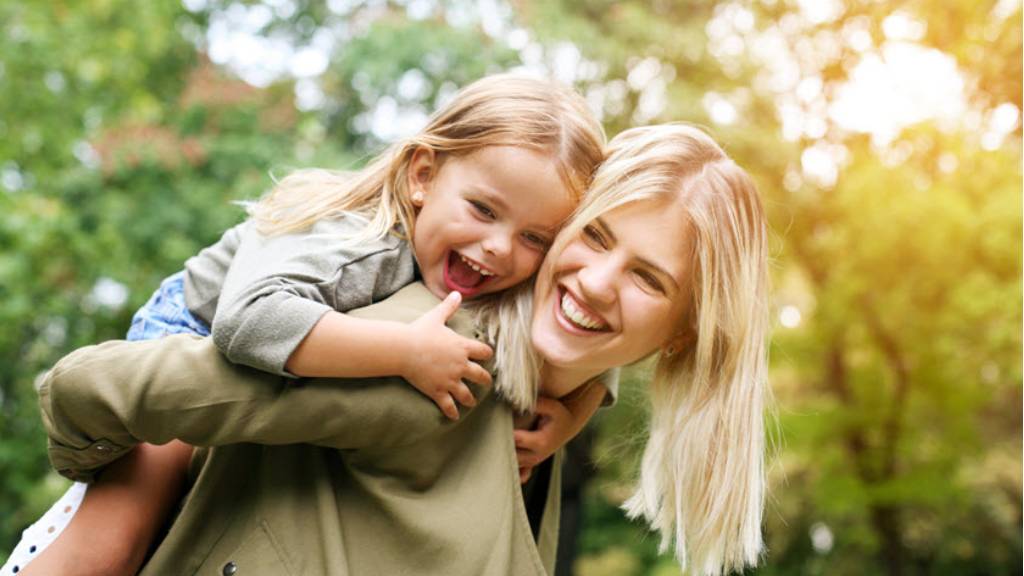The Real Concerns of Parents

14 Dec 2020
Raising children is one of the most rewarding jobs in the world, but it sure does come with its challenges. It’s natural for us to want our children to feel safe, happy and loved, and most of us can relate to feelings of worry when it comes to our children’s future.There are many things we worry about as parents, from general safety, time constraints, academic success, and finances. And according to our research, almost 3 in 4 (73.0%) Australian parents are currently stressed and anxious as a result of uncertainties they are experiencing in their daily lives.
The Real Concerns of Parents Survey is our second instalment in the Real Concerns series. In this chapter we’ve checked back in with Australian parents to see how their concerns have changed from our last study in 2019. This study reveals how the turbulent year of 2020 has influenced worries around the future of our children.

Whist we are currently seeing increased levels of stress and anxiety, we’re also seeing concerns around family wellbeing, finances, children’s education and climate change. Financial (32.4%) and family concerns (32.2%) are amongst the biggest worries for parents, regardless of their own age and wealth. Protecting the environment saw approximately a 30 per cent increase in concern since 2019 with Australia increasingly becoming a weather ‘disaster zone’.
Keeping the family unit happy and healthy
Probably one of the most important goals of parenting is raising content and fulfilled children. And with so much uncertainty in 2020, we weren’t surprised to see that parents have been worrying about the happiness of their family (89.3%).
Finding space in our day to spend one-on-one time with our children can be a challenge, but the American Academy of Paediatrics has found there are numerous benefits to a child’s development by doing so, including promoting their cognitive and behavioural skills. And this year has proven this, with 20 per cent more parents now strongly concerned about finding enough quality time where their family can really connect, compared to before the pandemic.
Younger parents (aged 29 and below) are particularly concerned about making sure everyone in the family feels happy, with almost half (47.2%) reporting this as a very strong concern.
Interestingly, more wealth does not necessarily mean less stress. Almost two in five are worried about making sure everyone is the family feels happy, regardless of their income brackets.
COVID feeds concerns about family finances
We all know the uncertainty and stress that COVID-19 brought, with warnings of a major financial depression. So, it’s no surprise a large majority (89.6%) of parents are concerned about COVID-19’s effect on the global and local economy.
The constant exposure, combined with many losing jobs or having to fall back on government support, has understandably increased anxiety levels around family finances.
In 2020, we saw a rise in parents worrying about covering day to day expenses (69.0%) and unexpected costs (78.3%), as well as having financially stability to give their children a head start (81.9%) to a bright future.
Expectedly, lower income families (36.6%) are significantly more distressed about their financial situation (cost of living, economic stability and financial security) compared to those in higher income brackets (18.2%).
As the economic downturn is having a higher direct impact on lower income families, it’s perhaps unsurprising that the study confirms these parents are experiencing a much higher level of stress and anxiety (30.8%), versus wealthy families (15.5%) in today's environment.
Kids’ education and future job security
2020 has seen most children in Australia spend more time in the home vs the classroom, which has led to concerns about children falling behind (60.5%).
However, the biggest fear for parents is the cost of education, with more than four in five (81.0%) concerned about this. Most are also worried about future job security for their children, although younger parents are less prone to share this sentiment, likely because of their relatively strong optimism about the future. They are also more likely to focus on short-term concerns rather than looking to the future. In contrast, parents in their 50s, whose children are more likely to be older and working, are more concerned about their children’s job security.
Protecting the environment for future generations
The pandemic has reset our view of the future, providing an opportunity to reflect on human behaviour and the need to care for the planet. With bushfires, floods, drought and the COVID-19 pandemic, 2020 has been an unprecedented year, and it has seen concerns for the environment intensify among parents of all ages.
Over four in five are concerned about the environmental legacy we are leaving our children (85.3%), with almost one third identifying this issue as a very strong concern, an increase of 19.3 per cent compared to last year.
Most are also worried about the how a degrading environment is leading to a reduced quality of life (84.0%), and about Australia increasingly becoming a weather ‘disaster zone’ (80.0%).With the uncertainties brought about by a pandemic, it comes as no surprise to see our concerns spike. It’s also natural for us to worry – particularly when it comes to our children. We want the best for them, and hopefully the future beyond the chaos of 2020 is one that is bright for all Aussies.
To find out how we’ve reprioritised over the last year, take a look at the Real Concerns Index 2019.
Download full research report
- Real Concerns of Parents [PDF]